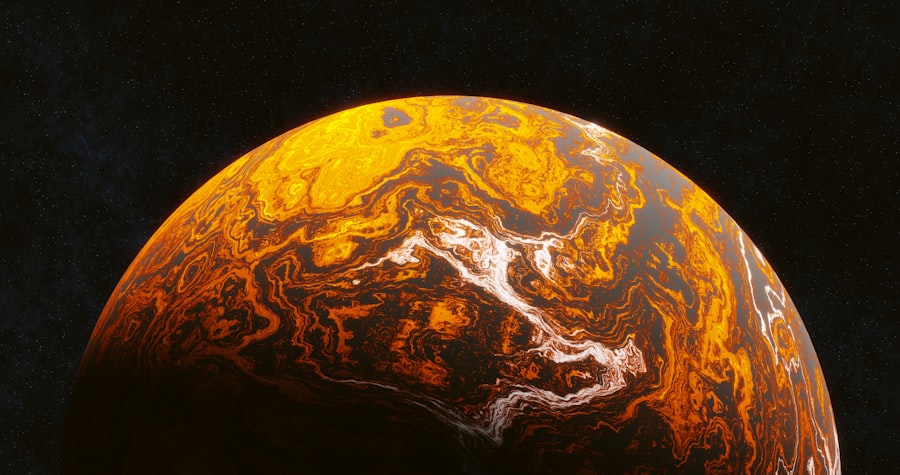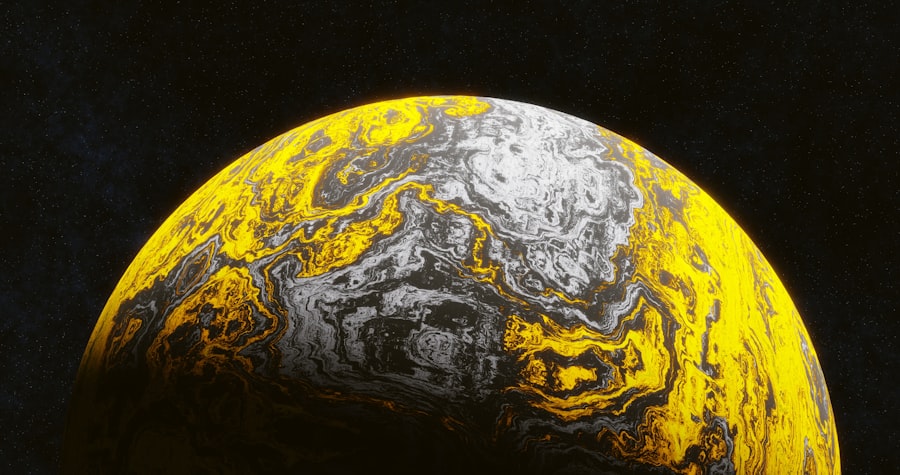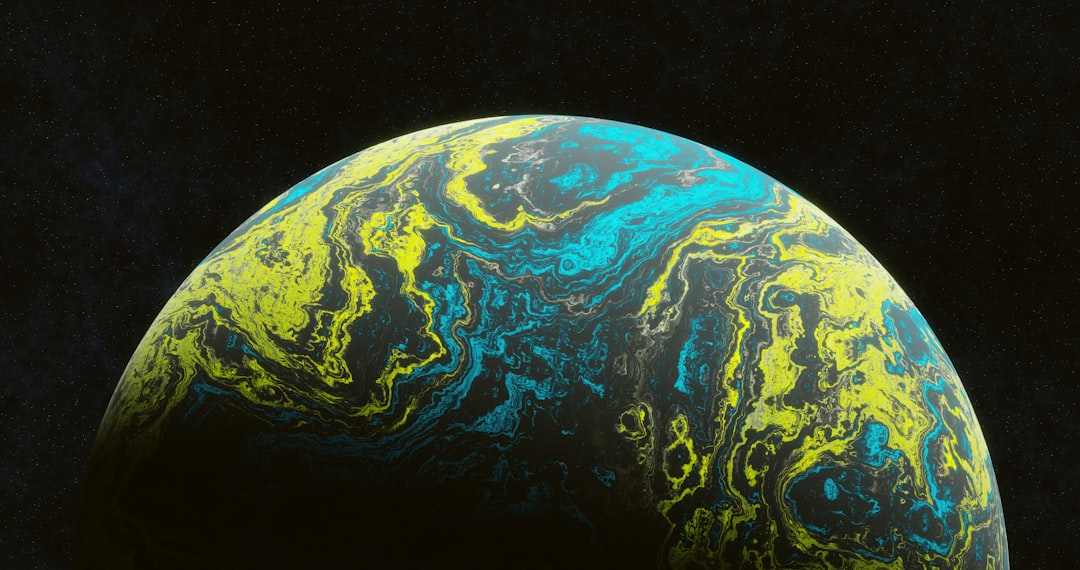The notion of the universe as a computer has captivated the minds of scientists, philosophers, and thinkers alike. This intriguing idea posits that the cosmos operates much like a vast computational system, processing information and generating the reality that humans experience. By examining the universe through this lens, one can uncover profound insights into the nature of existence, the laws of physics, and even the essence of consciousness itself.
The implications of such a perspective are far-reaching, prompting questions about the fundamental structure of reality and humanity’s place within it. As humanity continues to advance technologically, the parallels between computational systems and the universe become increasingly apparent. The exploration of this concept invites a multidisciplinary approach, merging physics, computer science, philosophy, and cognitive science.
By delving into the theoretical frameworks that support this idea, one can begin to appreciate the intricate relationship between computation and the fabric of reality. This article aims to explore these connections, shedding light on how viewing the universe as a computer can reshape our understanding of existence.
Key Takeaways
- The universe can be conceptualized as a vast computational system, integrating principles from physics and information theory.
- Quantum mechanics reveals parallels between quantum processes and computational operations, suggesting a computational nature of reality.
- Simulating the universe through computer models offers potential insights but faces significant technical and theoretical challenges.
- Viewing the universe as a computer influences our understanding of physical laws, consciousness, and the nature of existence.
- Ethical, philosophical, and practical implications arise from this perspective, prompting debates on reality, technology, and the limits of scientific inquiry.
Theoretical framework: How the universe could be seen as a computational system
The theoretical framework for viewing the universe as a computational system draws from various scientific disciplines, particularly physics and computer science. At its core, this perspective suggests that the fundamental building blocks of reality—particles, forces, and fields—can be understood as bits of information being processed in a grand cosmic algorithm. This idea aligns with digital physics, a field that posits that the universe is fundamentally informational in nature.
In this view, physical phenomena emerge from computational processes rather than being merely described by them. One of the most compelling aspects of this framework is its ability to unify disparate areas of study. For instance, concepts from quantum mechanics can be interpreted through computational lenses, suggesting that particles behave like bits in a computer program.
This perspective not only provides a fresh understanding of quantum behavior but also raises questions about determinism and randomness in the universe. By framing reality as a computational system, researchers can explore how information is encoded, processed, and transmitted across the cosmos, leading to new insights into both physical laws and the nature of existence itself.
Quantum mechanics and information theory: The parallels between quantum processes and computation

Quantum mechanics has long been regarded as one of the most perplexing fields in physics, characterized by phenomena that defy classical intuition. However, when viewed through the lens of information theory, quantum processes reveal striking parallels with computation. In quantum mechanics, particles exist in superpositions of states until measured, a concept that resonates with the idea of data being processed in multiple states simultaneously within a computer system.
This duality suggests that information is not merely a passive representation of reality but an active component in shaping it. Moreover, quantum entanglement—the phenomenon where particles become interconnected regardless of distance—can be likened to complex computational networks. In such networks, information can be shared instantaneously across vast distances, reminiscent of how entangled particles exhibit correlations that transcend classical limitations.
This connection between quantum mechanics and information theory not only enhances our understanding of quantum phenomena but also reinforces the notion that the universe operates on principles akin to those found in advanced computational systems.
Simulating the universe: The potential for creating computer models of the universe
| Metric | Description | Typical Value / Range | Significance in Universe Simulation |
|---|---|---|---|
| Simulation Volume | Physical size of the simulated universe region | 10 Mpc to 1 Gpc (megaparsecs to gigaparsecs) | Determines scale of cosmic structures modeled (galaxies, clusters) |
| Particle Count | Number of particles or elements used in the simulation | 10^6 to 10^12 particles | Higher counts improve resolution and detail of matter distribution |
| Time Steps | Number of discrete time intervals simulated | 10^3 to 10^6 steps | Controls temporal resolution and accuracy of evolution |
| Computational Power | Processing capability required | Teraflops to Petaflops | Enables handling complex calculations and large datasets |
| Memory Usage | RAM required to store simulation data | Terabytes (TB) | Supports storage of particle states and intermediate results |
| Physical Models Included | Types of physics simulated (gravity, dark matter, gas dynamics) | Gravity, hydrodynamics, radiation, dark energy models | Determines realism and scope of universe behavior modeled |
| Simulation Duration | Real-world time span covered by the simulation | From Big Bang (~13.8 billion years) to present | Allows study of universe evolution over cosmic time |
| Output Data Size | Amount of data generated by simulation | Terabytes to Petabytes | Impacts storage and analysis capabilities |
The idea of simulating the universe has gained traction in recent years, fueled by advancements in computational power and algorithms. Researchers have begun to explore the feasibility of creating detailed models that replicate cosmic phenomena, from galaxy formation to particle interactions. These simulations serve as powerful tools for testing theories and hypotheses about the universe’s behavior.
By treating the cosmos as a vast computational system, scientists can develop models that mimic its complexity and richness.
By employing sophisticated algorithms and vast amounts of data, researchers can recreate cosmic events such as the Big Bang or the formation of black holes.
These simulations not only provide insights into the underlying mechanisms driving cosmic evolution but also raise philosophical questions about the nature of reality itself. If the universe can be simulated with sufficient accuracy, what does that imply about our own existence? Are humans merely players in an elaborate cosmic simulation?
The role of consciousness: How human consciousness fits into the idea of the universe as a computer
The relationship between consciousness and the concept of the universe as a computer is a profound area of inquiry. If one accepts that reality is fundamentally informational and computational, it follows that consciousness itself may be an emergent property arising from complex computations within this cosmic framework. This perspective invites exploration into how human awareness interacts with the fabric of reality and whether consciousness plays an active role in shaping it.
Some theorists propose that consciousness could be viewed as a form of computation—a process through which information is integrated and interpreted. This aligns with theories suggesting that consciousness arises from neural networks in the brain, which can be likened to computational systems processing vast amounts of data. By examining consciousness through this lens, researchers can investigate how awareness influences perception and understanding of reality.
This inquiry not only deepens our comprehension of consciousness but also raises questions about free will and determinism within a computational universe.
Implications for physics: The impact of viewing the universe as a computer on our understanding of physical laws

Viewing the universe as a computer has significant implications for physics and our understanding of fundamental laws governing reality. This perspective challenges traditional notions of causality and determinism by suggesting that physical laws may emerge from underlying computational processes rather than being fixed principles governing all interactions. Such a shift could lead to new paradigms in theoretical physics, prompting researchers to reevaluate established theories like general relativity and quantum mechanics.
Furthermore, this computational view encourages interdisciplinary collaboration among physicists, computer scientists, and philosophers. By integrating insights from various fields, researchers can develop more comprehensive models that account for both physical phenomena and informational processes. This collaborative approach may yield breakthroughs in understanding complex systems, such as black holes or dark matter, ultimately reshaping our conception of reality itself.
Ethical considerations: The implications of the universe as a computer for our understanding of reality and existence
The idea that the universe functions as a computer raises profound ethical considerations regarding humanity’s place within this computational framework. If reality is fundamentally informational, what responsibilities do individuals have toward their own existence and that of others? This question invites reflection on issues such as free will, agency, and moral accountability within a potentially deterministic system.
Moreover, if humans are seen as conscious agents within a vast cosmic computation, it prompts inquiries into how individuals interact with their environment and each other.
As society increasingly relies on computational systems for decision-making and communication, understanding these ethical dimensions becomes crucial for navigating an increasingly complex world.
Practical applications: How the concept of the universe as a computer could be applied in technology and science
The concept of viewing the universe as a computer has practical applications across various fields, particularly in technology and science. In computer science, insights drawn from this perspective can inform advancements in artificial intelligence (AI) and machine learning algorithms. By understanding how information is processed at fundamental levels, researchers can develop more efficient algorithms capable of tackling complex problems.
In scientific research, this computational framework can enhance simulations used in fields such as climate modeling or drug discovery. By treating these systems as vast informational networks, scientists can create more accurate models that account for intricate interactions among variables. This approach not only improves predictive capabilities but also fosters innovation by enabling researchers to explore new avenues for experimentation.
Criticisms and challenges: Addressing the potential limitations and criticisms of the idea
Despite its intriguing possibilities, viewing the universe as a computer is not without its criticisms and challenges. One significant concern revolves around determinism versus free will; if reality operates like a computation, it raises questions about human agency and moral responsibility. Critics argue that this perspective may undermine notions of individuality and autonomy by framing human experience within predetermined algorithms.
Additionally, some skeptics contend that equating the universe with computation risks oversimplifying complex phenomena inherent in nature. They argue that while computational models can provide valuable insights, they may fail to capture the richness and unpredictability of real-world interactions. Addressing these criticisms requires careful consideration and ongoing dialogue among scientists, philosophers, and ethicists to ensure a balanced understanding of both computational frameworks and their limitations.
Philosophical implications: The impact of the universe as a computer on our understanding of reality and existence
The philosophical implications of viewing the universe as a computer are profound and far-reaching. This perspective challenges traditional metaphysical assumptions about reality by suggesting that existence itself may be fundamentally informational rather than material. Such a shift invites reevaluation of concepts like time, space, and causality—elements often taken for granted in philosophical discourse.
Moreover, this computational view raises existential questions about humanity’s role within this vast informational landscape. If individuals are seen as conscious agents navigating a cosmic computation, it prompts inquiries into purpose and meaning within an ostensibly deterministic framework. Philosophers must grapple with these questions to develop coherent understandings of existence that resonate with both scientific insights and human experience.
Reflecting on the implications of viewing the universe as a computer and the potential for further exploration
In conclusion, exploring the concept of the universe as a computer opens up new avenues for understanding reality itself. By framing existence through this lens, one can uncover intricate connections between physics, consciousness, ethics, and technology. The implications are vast—challenging established paradigms while inviting interdisciplinary collaboration among diverse fields.
As humanity continues to advance technologically and philosophically, further exploration into this concept holds promise for deepening comprehension of both existence and our place within it. The journey ahead will undoubtedly be complex but rich with potential for discovery—inviting individuals to reflect on their own experiences within this grand cosmic computation.
The concept of the universe as a computer has intrigued scientists and philosophers alike, prompting discussions about the nature of reality and existence. A related article that delves into the implications of this idea can be found at Freaky Science, where various theories about the universe’s structure and function are explored. This perspective not only challenges our understanding of physics but also invites us to consider the possibility that our reality might be a sophisticated simulation.
WATCH THIS! The Glitch Is Real: Why Physics Says Time Is Breaking Down
FAQs
What does it mean to say the universe is a computer?
The idea that the universe is a computer suggests that all physical processes and phenomena can be understood as computations or information processing. This concept implies that the universe operates like a vast computational system, where the laws of physics function as algorithms.
Who proposed the idea that the universe might be a computer?
The concept has been explored by various scientists and philosophers, including Konrad Zuse, who proposed the “computable universe” hypothesis, and physicist John Archibald Wheeler, who coined the phrase “it from bit,” suggesting that information is fundamental to the fabric of reality.
Is there scientific evidence supporting the universe as a computer?
Currently, the idea remains a theoretical and philosophical hypothesis. While some aspects of physics, such as quantum computing and digital physics, explore related concepts, there is no direct empirical evidence proving the universe functions as a computer.
How does the concept relate to digital physics?
Digital physics is a field that models the universe as fundamentally discrete and computational, rather than continuous. It supports the idea that the universe’s behavior can be simulated or described by computational processes, aligning with the notion of the universe as a computer.
What implications would a computer universe have for our understanding of reality?
If the universe is a computer, it could mean that reality is fundamentally informational and that physical laws are computational rules. This perspective might influence how we approach physics, cosmology, and even consciousness, potentially leading to new technologies or insights into the nature of existence.
Can the universe being a computer be tested or falsified?
Testing this hypothesis is challenging because it requires identifying observable phenomena that can only be explained if the universe operates computationally. Some researchers propose looking for “signatures” of computation, such as limits on information density or processing speed, but no definitive tests currently exist.
Does the idea imply the universe is a simulation?
While related, the concept that the universe is a computer does not necessarily mean it is a simulation created by an external entity. The universe could be computational in nature without being a simulation, meaning its fundamental processes are computational rather than analog.
How does quantum computing relate to the universe as a computer?
Quantum computing explores computation using quantum-mechanical phenomena, which some theorists suggest could reflect the universe’s own computational processes. Understanding quantum computation might provide insights into how the universe processes information at a fundamental level.
What philosophical questions arise from the universe being a computer?
This idea raises questions about determinism, free will, consciousness, and the nature of existence. If the universe is computational, it challenges traditional views on reality and may suggest that everything, including life and thought, arises from information processing.
Are there any practical applications of viewing the universe as a computer?
While primarily theoretical, this perspective influences fields like quantum computing, information theory, and cosmology. It encourages interdisciplinary research that could lead to advances in technology, physics, and our understanding of complex systems.
